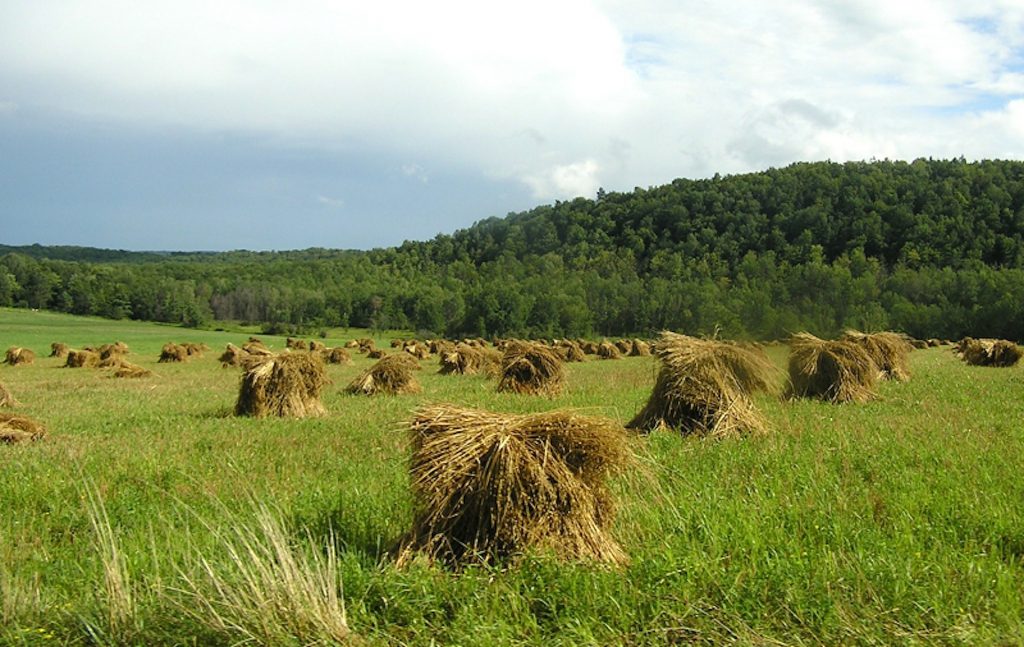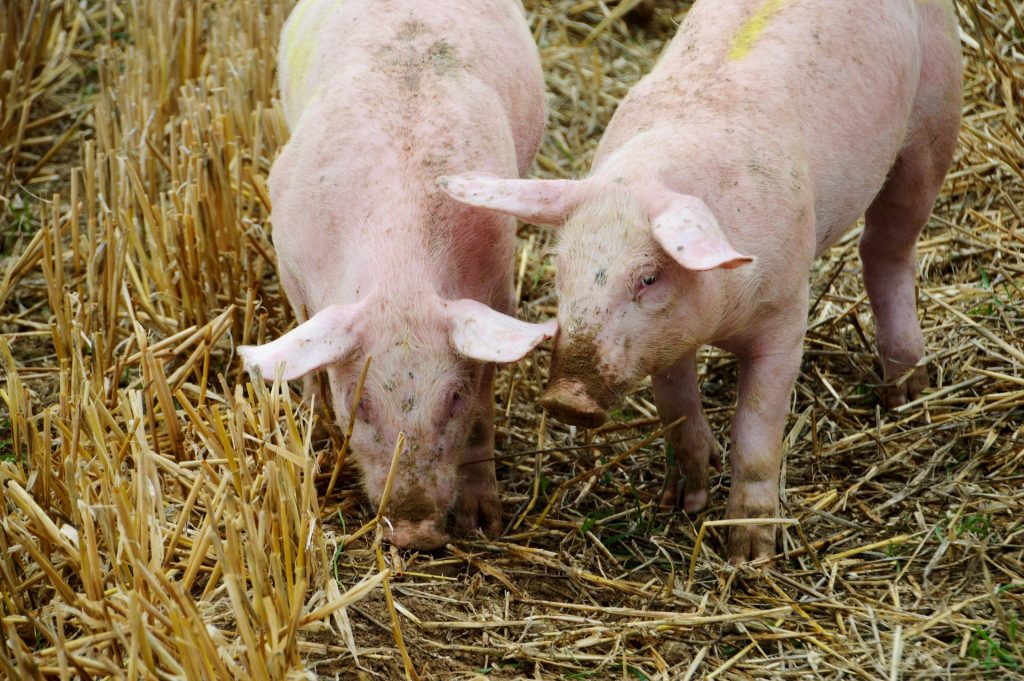Sepia Saturday 459. Second in a series on the early life of my paternal great-great grandmother Mary Elizabeth (Blakeslee) Bull, a Union Civil War widow.
The 1850 U.S. census for Conklin, Broome Co., New York shows my great-great grandmother Mary Elizabeth Blakeslee, 12, attending school and living on a farm with her parents Zebulon and Hannah (Hance) Blakeslee.
Alas, this federal census doesn’t contain addresses for rural properties — so I’m not sure exactly where the farm was located. And my first attempt at land research hasn’t turned up anything, either.

However, an 1850 U.S. agricultural census was also conducted about a month after the population census. And I was thrilled to find the farm of “Z. Blakesley” on its roster — providing many details about the farm where Mary lived as a girl. 1 1850 US census, Conklin, Broome County, New York, pages 355-356 penned, line 26, owner, agent or manager Z. Blakesley, digital images, Ancestry.com accessed 2 Feb 2019, Archive Collection Number A1, Roll 1 Schedule type, agricultural.
Horses and milk cows and swine, oh my!
On 5 Aug. 1850, when the agricultural census taker came calling, the Blakeslee family was living on an 80-acre farm. Most of the land was productive — with 70 acres described as “improved.” Only 10 acres were “unimproved.” which could mean forested or rocky or in some other way un-farmable.
I spent my early childhood on a 10-acre farm in upstate New York, so the 80-acre Blakeslee farm seems large and impressive by comparison. Its cash value of $2,000 [equivalent to about $65,542 in today’s dollars] underscores this impression.
Although the Blakeslee farm was mostly geared to field production, there were a few farm animals — which may have fascinated my great-great grandmother Mary Elizabeth when she was growing up. Specifically:
- Horses – 1
- Milk cows – 3
- Swine – 2
- Value of Live Stock – $156 [about $5,034 today]

There may also have been cats (typically kept on New York State farms to reduce the rodent population) and maybe even a dog — but these are not addressed in the census.
A productive spread
A second census page lists the agricultural production of Zebulon Blakeslee’s farm, indicating a focus on grains and hay — with the three milk cows contributing to substantial butter production and the swine, presumably, contributing to the slaughtered animals.
- Indian corn – 100 bushels
- Oats – 351 bushels
- Buckwheat – 65 bushels
- Butter – 300 pounds
- Hay – 20 tons
- Value of Animals Slaughtered – $40 [about $1,291 today]
For my great-great grandmother Mary Elizabeth, all of this might have formed more of a backdrop to her life as a pre-teen attending school.
Yet she may have had before- or after-school chores that the population census doesn’t tell us about — since the report lists no boarders or farm hands living with the Blakeslee family.
Up next: What else can I learn about Mary Elizabeth’s early life in Conklin, N.Y.? Meanwhile, please visit the blogs of this week’s other Sepia Saturday participants here.
© 2019 Molly Charboneau. All rights reserved.
